-
×
 Composition-Beyond the Rule of Thirds By Chris Knight
1 × $5,00
Composition-Beyond the Rule of Thirds By Chris Knight
1 × $5,00 -
×
 Next Level Playing By Paul Davids
1 × $46,00
Next Level Playing By Paul Davids
1 × $46,00 -
×
 Mixing Master Class By Joey Sturgis
1 × $5,00
Mixing Master Class By Joey Sturgis
1 × $5,00 -
×
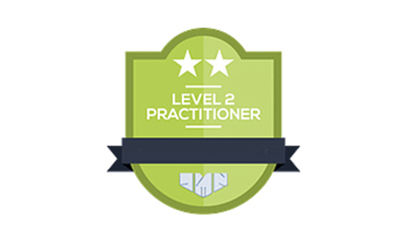 Level 2 Practitioner Certification By AMN Academy
1 × $109,00
Level 2 Practitioner Certification By AMN Academy
1 × $109,00 -
×
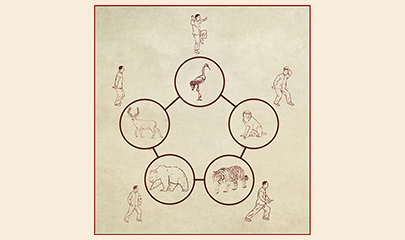 Five Animal Play Qi Gong Online Learning Program By Tom Bisio
1 × $39,00
Five Animal Play Qi Gong Online Learning Program By Tom Bisio
1 × $39,00 -
×
 Corefist - Fascially Integrated Strength Training Workshop By Weck Method
1 × $31,00
Corefist - Fascially Integrated Strength Training Workshop By Weck Method
1 × $31,00 -
×
 Getting Started with Adobe Photoshop By Matt Kloskowski
1 × $5,00
Getting Started with Adobe Photoshop By Matt Kloskowski
1 × $5,00 -
×
 Local Dodging and Burning for Beauty Retouching By Chris Knight
1 × $5,00
Local Dodging and Burning for Beauty Retouching By Chris Knight
1 × $5,00 -
×
 Photographing Panoramas for Large Prints By Mike Hagen
1 × $5,00
Photographing Panoramas for Large Prints By Mike Hagen
1 × $5,00 -
×
 Energy of Ethics and Relationship Stress by Sara Allen
1 × $31,00
Energy of Ethics and Relationship Stress by Sara Allen
1 × $31,00 -
×
 Heart Coach With Annie Lalla
1 × $78,00
Heart Coach With Annie Lalla
1 × $78,00 -
×
 EPIC RISERS SOUND FX By Ocular Sounds
1 × $4,00
EPIC RISERS SOUND FX By Ocular Sounds
1 × $4,00 -
×
 Isle of Skye Foggy Mountainside Composite Stock Assets by Clinton Lofthouse
1 × $8,00
Isle of Skye Foggy Mountainside Composite Stock Assets by Clinton Lofthouse
1 × $8,00 -
×
 The Channel Systems of Classical Chinese Acupuncture by Jeffrey Yuen
1 × $31,00
The Channel Systems of Classical Chinese Acupuncture by Jeffrey Yuen
1 × $31,00 -
×
 Embodied Somatic Freedom by Brian Siddhartha Ingle - The Shift Network
1 × $101,00
Embodied Somatic Freedom by Brian Siddhartha Ingle - The Shift Network
1 × $101,00 -
×
 Adobe Photoshop Actions for Color | Midnight Action by Kate Woodman
1 × $8,00
Adobe Photoshop Actions for Color | Midnight Action by Kate Woodman
1 × $8,00 -
×
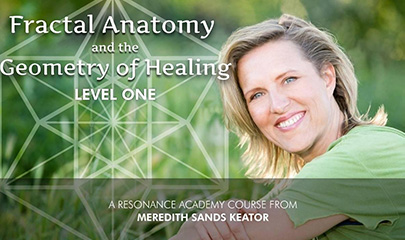 Fractal Anatomy & The Geometry of Healing Level 1 By Meredith Sands Keator
1 × $62,00
Fractal Anatomy & The Geometry of Healing Level 1 By Meredith Sands Keator
1 × $62,00 -
×
 The Agony and Ecstasy of Being a Magnetic Being on Earth by Sara Allen
1 × $15,00
The Agony and Ecstasy of Being a Magnetic Being on Earth by Sara Allen
1 × $15,00 -
×
 4000 (currently 27 hours) Musculosketal Mechanics 1 + Exercise Considerations 1 By Exercise Professional
1 × $31,00
4000 (currently 27 hours) Musculosketal Mechanics 1 + Exercise Considerations 1 By Exercise Professional
1 × $31,00 -
×
 Home Based Photography Studio Business By Stone River eLearning
1 × $6,00
Home Based Photography Studio Business By Stone River eLearning
1 × $6,00 -
×
 SaaS Discovery Masterclass 2.0 By Chris Orlob
1 × $62,00
SaaS Discovery Masterclass 2.0 By Chris Orlob
1 × $62,00 -
×
 Fashion Photography Posing and Lighting By Sue Bryce & Felix Kunze
1 × $5,00
Fashion Photography Posing and Lighting By Sue Bryce & Felix Kunze
1 × $5,00 -
×
 Wedding Photographer Survival Kit By Susan Stripling
1 × $5,00
Wedding Photographer Survival Kit By Susan Stripling
1 × $5,00 -
×
 The Elite RV Sales Training Course By Andy Elliott
1 × $124,00
The Elite RV Sales Training Course By Andy Elliott
1 × $124,00 -
×
 Business Freedom Blueprint 2023 By Eric Edmeades
1 × $6,00
Business Freedom Blueprint 2023 By Eric Edmeades
1 × $6,00 -
×
 CranioSacral Therapy: Recognizing the Body-Mind Continuum By John Upledger
1 × $15,00
CranioSacral Therapy: Recognizing the Body-Mind Continuum By John Upledger
1 × $15,00 -
×
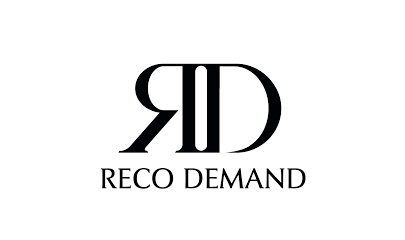 RECODemand Webinar Mastery Course 2024 By Yaman Abuibaid
1 × $171,00
RECODemand Webinar Mastery Course 2024 By Yaman Abuibaid
1 × $171,00 -
×
 The Growth Blueprint for Freelancers Coaches Creators By Stefan Palios
1 × $46,00
The Growth Blueprint for Freelancers Coaches Creators By Stefan Palios
1 × $46,00 -
×
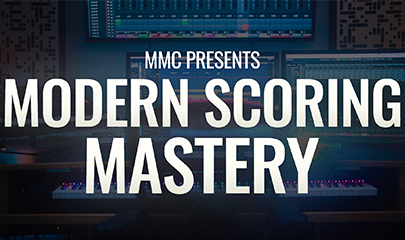 Modern Scoring Mastery By Jonas Friedman
1 × $62,00
Modern Scoring Mastery By Jonas Friedman
1 × $62,00 -
×
 Shooting The Scene By Jim Denault, ASC
1 × $5,00
Shooting The Scene By Jim Denault, ASC
1 × $5,00 -
×
 How I use Technical Analysis And Orderflow By Adam Webb - Traderskew
1 × $54,00
How I use Technical Analysis And Orderflow By Adam Webb - Traderskew
1 × $54,00 -
×
 Small Account Futures (Elite Package) By Joe Rokop - Simpler Trading
1 × $23,00
Small Account Futures (Elite Package) By Joe Rokop - Simpler Trading
1 × $23,00 -
×
 Beginner Forex Mastery Course By Harrison Uwah - MHU FX Academy
1 × $78,00
Beginner Forex Mastery Course By Harrison Uwah - MHU FX Academy
1 × $78,00 -
×
 Options Trading Workshop On Demand By Affordable Financial Education
1 × $69,00
Options Trading Workshop On Demand By Affordable Financial Education
1 × $69,00 -
×
 The Apostille Coach MasterClass - Apostille Agent Training By Anayansi
1 × $54,00
The Apostille Coach MasterClass - Apostille Agent Training By Anayansi
1 × $54,00 -
×
 The Cover Your SaaS Contract Bundle By Chris Lyle
1 × $132,00
The Cover Your SaaS Contract Bundle By Chris Lyle
1 × $132,00 -
×
 Advanced Cycles By Nick Santiago - InTheMoneyStocks
1 × $171,00
Advanced Cycles By Nick Santiago - InTheMoneyStocks
1 × $171,00 -
×
 This Day in History: September By Wondrium
1 × $5,00
This Day in History: September By Wondrium
1 × $5,00 -
×
 2022 Airbnb Challenge By Patrice S Jordan
1 × $101,00
2022 Airbnb Challenge By Patrice S Jordan
1 × $101,00 -
×
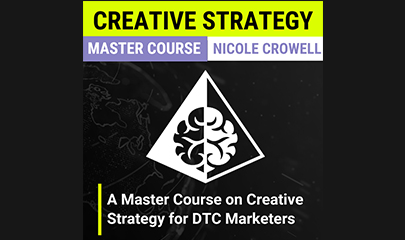 Creative Strategy Master Course By Nicole Crowell
1 × $54,00
Creative Strategy Master Course By Nicole Crowell
1 × $54,00 -
×
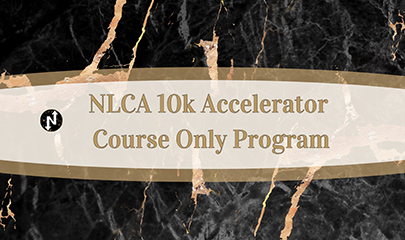 The NLCA 10k Accelerator Program Course By Chad Molyneux
1 × $109,00
The NLCA 10k Accelerator Program Course By Chad Molyneux
1 × $109,00 -
×
 6 Steps to Great Leadership (Videos Only) By John Demartini
1 × $54,00
6 Steps to Great Leadership (Videos Only) By John Demartini
1 × $54,00 -
×
 Training the Electric/Magnetic Lines of Force with Movement By Sixty Skills
1 × $15,00
Training the Electric/Magnetic Lines of Force with Movement By Sixty Skills
1 × $15,00 -
×
 Playful Millions 2023 By Cat Howell
1 × $31,00
Playful Millions 2023 By Cat Howell
1 × $31,00 -
×
 Wealth Academy By Brian Rose
1 × $23,00
Wealth Academy By Brian Rose
1 × $23,00 -
×
 Raise Your Money Vibration Program By Awesome Aj Academy
1 × $39,00
Raise Your Money Vibration Program By Awesome Aj Academy
1 × $39,00 -
×
 Abundance And Money Workshop Replay By Samantha Chung & Gina Bourne
1 × $46,00
Abundance And Money Workshop Replay By Samantha Chung & Gina Bourne
1 × $46,00 -
×
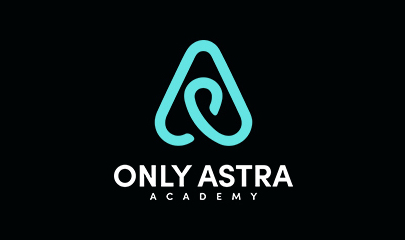 The Only Astra Academy By Jermaine Francois
1 × $15,00
The Only Astra Academy By Jermaine Francois
1 × $15,00 -
×
 Wondrium Pilots: Susan B. Anthony and Suffragist Images By Wondrium
1 × $5,00
Wondrium Pilots: Susan B. Anthony and Suffragist Images By Wondrium
1 × $5,00 -
×
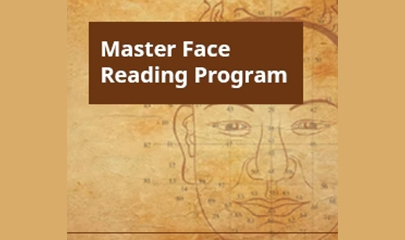 Master Face Reading Program By Lillian Pearl Bridges
1 × $544,00
Master Face Reading Program By Lillian Pearl Bridges
1 × $544,00 -
×
 Bond Market Course By The Macro Compass
1 × $15,00
Bond Market Course By The Macro Compass
1 × $15,00 -
×
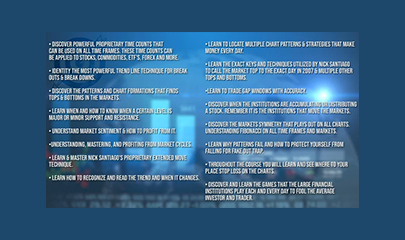 The Methodology Revealed By Nick Santiago And Gareth Soloway - InTheMoneyStocks
1 × $209,00
The Methodology Revealed By Nick Santiago And Gareth Soloway - InTheMoneyStocks
1 × $209,00 -
×
 Foundr - All Courses Bundle
1 × $23,00
Foundr - All Courses Bundle
1 × $23,00 -
×
 Mentoring Program Weekly Calls and Teleconference by Cory Skyy
1 × $5,00
Mentoring Program Weekly Calls and Teleconference by Cory Skyy
1 × $5,00 -
×
 Sexual Trigger Program by Jon Sinn
1 × $5,00
Sexual Trigger Program by Jon Sinn
1 × $5,00 -
×
 Accents and Dialects Master Class By Eliza Jane Schneider
1 × $62,00
Accents and Dialects Master Class By Eliza Jane Schneider
1 × $62,00 -
×
 Freedom By Peter Crone
1 × $39,00
Freedom By Peter Crone
1 × $39,00 -
×
 The Art Of Strategic Freelance Consulting By Paul Millerd
1 × $39,00
The Art Of Strategic Freelance Consulting By Paul Millerd
1 × $39,00
Aromatherapy in Classical Chinese Medicine by Jeffrey Yuen
$190,00 $46,00
SKU: KOB.59520426nbT
Category: Health
Tags: Aromatherapy, Aromatherapy in Classical Chinese Medicine, Jeffrey Yuen
Aromatherapy in Classical Chinese Medicine by Jeffrey Yuen – Digital Donwload!
Let’s embark on a thrilling journey to uncover extraordinary insights that ignite your curiosity and transform your understanding
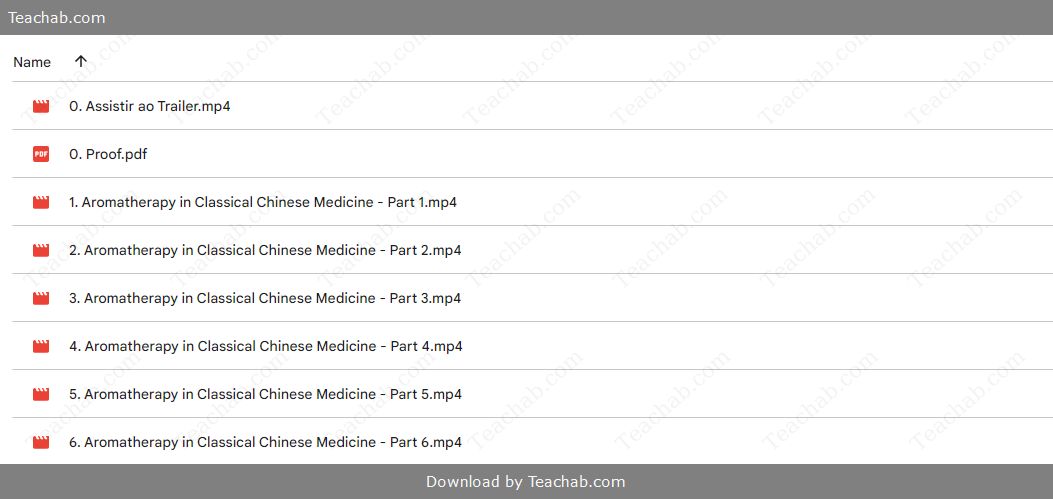
Aromatherapy in Classical Chinese Medicine by Jeffrey Yuen
Overview

Aromatherapy in Classical Chinese Medicine by Jeffrey Yuen
Aromatherapy, often perceived simply as a soothing practice filled with delightful scents, extends far beyond mere relaxation. It intertwines deeply with the historic wisdom of Classical Chinese Medicine (CCM), emerging as a potent therapeutic modality that captures the essence of both physical and emotional well-being. In his enlightening work, Jeffrey Yuen, a prominent figure in the field of Chinese medicine, intricately bridges the gap between essential oils and their energetic properties rooted in ancient Chinese philosophies. Through metaphors that liken the aromatic compounds to gentle breezes carrying healing energies, Yuen invites practitioners to reimagine the way they approach healing. The world of aromatherapy unfolds like a fragrant tapestry, where each thread, or oil, has its role and significance in restoring balance within the body and harmonizing the spirit.
Throughout history, cultures have revered the use of aromatic plants for their purported health benefits. This age-old tradition resonates within the principles of Traditional Chinese Medicine, where the energetic qualities of essential oils are harmonized with vital concepts like Qi, Yin, Yang, and the Five Elements Theory. Each distinct aroma is not only comforting but embodying unique properties capable of influencing mental, emotional, and physical states. For instance, the sweet, calming notes of lavender may invite tranquility, while the invigorating scent of peppermint could awaken the senses. Such contrasts serve as a testament to the multidimensional scope of essential oils within therapeutic applications.
Aromatherapy sessions guided by Yuen’s insights encourage practitioners to delve deeper into the characteristics of essential oils, examining their qualities such as volatility, viscosity, and energetic signatures. The holistic nature of his teachings advocates for a comprehensive understanding of how essential oils can be employed strategically to target specific conditions. In this landscape of healing, essential oils morph from simple scents to vital allies in the endless pursuit of health, embodying a synthesis of ancient wisdom and modern clinical practice.
Theoretical Foundations
The theoretical foundations of aromatherapy in Classical Chinese Medicine elucidate how essential oils operate not just on a sensory level, but also as energetic entities harmonizing with the natural rhythms of the body. As emphasized by Jeffrey Yuen, this understanding moves beyond Western biochemical interpretations of essential oils to a more encompassing perspective rooted in Traditional Chinese Medicine. Here, essential oils are seen as extensions of the natural world, imbued with qualities that resonate with the Five Elements Wood, Fire, Earth, Metal, and Water each possessing unique therapeutic characteristics.
In the rich tapestry of Chinese medical philosophy, essential oils are believed to engage with the multifaceted layers of Qi the vital life force that sustains health and vitality. This integration posits that, similar to the elements that define nature, each oil can be classified based on its energetic qualities its ability to cool or warm, uplift or ground serving a specific therapeutic function. For example, an oil like cedarwood is often associated with calming properties that promote grounding and stability, while citrus oils may offer a vibrant lift in mood and energy.
Moreover, Yuen emphasizes the relevance of the three layers of Qi identified in Traditional Chinese Medicine: Yuan Qi, the original essence; Wei Qi, the protective energy; and Ying Qi, the nourishing aspect. Understanding how essential oils affect these layers can bridge practitioners to more effective treatment strategies encompassing not only the physical body but also the emotional and spiritual dimensions of health.
Through Yuen’s lens, essential oils serve as conduits of healing, influencing everything from the meridians in Traditional Chinese Medicine to the underlying emotional states associated with each organ. Thus, they become essential instruments in restoring balance, enhancing Qi, and allowing practitioners to navigate through complex health issues with a holistic approach that respects the intricate web of connections within the human body.
Energetic Qualities of Essential Oils
The exploration of the energetic qualities of essential oils unveils a fascinating interplay between aroma and therapeutic potential. Jeffrey Yuen meticulously categorizes essential oils based on their properties specifically volatility and viscosity which can significantly impact their therapeutic applications. This examination not only reflects how oils interact with the human body but also how they correlate with various Chinese medical theories.
- Volatility: This characteristic defines how readily an oil evaporates and disperses into the air. Essential oils with high volatility, like eucalyptus and peppermint, are often utilized for their energizing properties, uplifting moods and invigorating the senses. These oils can create an immediate impact on the mind, regulating emotional states with their prominent scents. On the contrary, oils with lower volatility, such as sandalwood, have more grounding effects and are typically used to calm the spirit and stabilize emotions.
- Viscosity: This attribute refers to the thickness and density of an oil. Thicker oils, like frankincense, tend to penetrate deeper into tissues, enabling them to cultivate healing effects on a cellular level. Such oils can balance the body’s energies while providing profound relaxation, fostering an environment conducive to emotional healing. In aromatherapy, the viscosity of an oil can also determine the way in which it is applied, whether through inhalation or topical use, enhancing its effectiveness for targeted therapies.
- Interactions with the Body: Understanding these energetic qualities helps practitioners develop targeted, symptom-specific blends. For instance, a combination of peppermint and lavender might be used in a blend to treat headaches, where peppermint brings immediate relief to physical pain while lavender fosters emotional calmness, creating a holistic treatment approach supportive of well-being.
In summary, the energetic qualities of essential oils form the backbone of aromatherapy practices in Classical Chinese Medicine. It aligns one’s understanding of essential oils to a deeper connectivity with nature’s intelligence, promoting a holistic vision of wellness that resonates with the core principles of healing expressed in Chinese philosophy.
Chinese Medical Perspectives on Essential Oils
Understanding essential oils through the lens of Traditional Chinese Medicine (TCM) allows practitioners to appreciate the profound connections between these aromatic substances and the intricate workings of the body. Yuen articulates how TCM principles dictate the therapeutic use of essential oils, observing their impact on the emotional and physiological states of individuals.
- Yin-Yang Dynamics: At the heart of TCM is the principle of Yin and Yang, representing the dual forces that govern the universe. Essential oils can embody both qualities, where cooling oils like peppermint are recognized for their Yin properties, providing relief and calm amidst chaos, while warming oils like ginger express Yang energy, invigorating and stimulating bodily functions. Recognizing the balance of these properties enables practitioners to create tailored treatments aligned with the patient’s unique constitution.
- Five Elements Theory: All essential oils have detailed correspondences with the Five Elements Wood, Fire, Earth, Metal, and Water. Each oil interacts with specific organs and can evoke particular emotional states. For instance, rose oil often relates to matters of the heart (Fire Element), promoting amore and empathy, while frankincense connects with the Metal Element, aiding in respiratory issues and spiritual clarity. By understanding these intricate relationships, practitioners can better align their aromatic interventions with TCM’s holistic pathways.
- The Role of Smell and Emotion: Within TCM, the senses are not merely channels of perception but vital connections to emotional and physical health. The olfactory system is profoundly linked to emotions due to its direct connection to the limbic system the brain center responsible for processing feelings. Essential oils can evoke positive emotional responses, allowing practitioners to utilize aromatherapy to mitigate stress, anxiety, and other psychological conditions effectively.
Yuen’s approach reveals that, while essential oils offer sensory pleasures, they serve a profoundly therapeutic function in promoting physical, emotional, and spiritual balance, redefining the way these fragrances are perceived and applied in healing practices. By understanding these medical perspectives, practitioners can forge deeper connections with clients while enhancing their overall therapeutic methodologies.
Associations Between Odor Qualities and Five Elements
The association between odor qualities and the Five Elements paves a vibrant path for practitioners seeking to utilize essential oils effectively within Classical Chinese Medicine frameworks. Jeffrey Yuen systematically outlines how different elemental qualities in essential oils can be matched to specific therapeutic needs, allowing practitioners to craft individualized treatments that resonate with each patient’s unique constitution.
Table: Essential Oils and Their Corresponding Elements
| Element | Essential Oils | Qualities | Associated Organs |
| Wood | Cedarwood, Bergamot | Flexibility, Growth | Liver, Gallbladder |
| Fire | Rose, Jasmine | Joy, Passion | Heart, Small Intestine |
| Earth | Clove, Myrrh | Stability, Nourishing | Spleen, Stomach |
| Metal | Frankincense, Sandalwood | Clarity, Strength | Lung, Large Intestine |
| Water | Lavender, Jasmine | Reflection, Intuition | Kidney, Bladder |
- Wood Element: Oils like cedarwood embody the growth and flexibility of the Wood element. They can facilitate the release of pent-up emotions and induce creativity, making them effective for clients seeking emotional healing related to stagnation or frustration.
- Fire Element: Essential oils such as rose resonate with the Fire element and evoke feelings of love and joy. Their uplifting nature can enhance heart health and stimulate social engagement, offering therapeutic support for conditions linked with emotional stress and anxiety.
- Earth Element: Utilizing oils that represent the Earth element, notably myrrh and clove, can help cultivate a sense of stability and nourishment. These oils are beneficial in practice for addressing digestive issues or anxiety, restoring a sense of calm through grounding energy.
- Metal Element: Oils closely tied to Metal, like sandalwood, support clarity and reflection. These oils assist in respiratory function and encourage emotional balance, particularly during periods of stress.
- Water Element: Aromatic properties of oils like lavender and jasmine embody the introspective qualities of the Water element. They nurture emotional depth, fostering tranquility and enhancing overall well-being, making them ideal for therapeutic settings focused on emotional release and balance.
By aligning essential oils with the Five Elements, practitioners gain a holistic understanding of their properties, enabling them to create synergistic blends that cater to a variety of therapeutic needs. This method underscores the significance of personalized treatments grounded in ancient wisdom while integrating modern therapeutic approaches.
Therapeutic Applications
The therapeutic applications of aromatherapy extend far beyond enticing aromas; they embody a blend of heritage and healing potential that resonates with the holistic principles of Classical Chinese Medicine. As articulated by Jeffrey Yuen, essential oils possess the capacity to enhance physical health, emotional balance, and spiritual well-being, thus providing a comprehensive approach to patient care.
- Strengthening Upright Qi: Essential oils are vital in fortifying the body’s upright Qi, an essential aspect of maintaining health and resilience. When the upright Qi is flourishing, the body is better equipped to fend off illness and restore balance. By incorporating essential oils with activating qualities, such as lemongrass or rosemary, practitioners can uplift patients’ state of vitality and harmony.
- Integration with Traditional Healing: Within the realm of TCM, aromatherapy serves as a complementary modality alongside acupuncture and herbal medicine. By integrating essential oils into these practices, practitioners are able to enhance treatment outcomes and provide a multi-layered healing experience that considers the individuality of each patient.
- Addressing Psychological Conditions: The use of essential oils in managing psychological issues has gained traction in recent years. Oils like lavender and chamomile have demonstrated calming properties, providing significant relief for anxiety and stress-related conditions. Their applications in aromatherapy, when combined with healthy coping mechanisms, enable practitioners to foster emotional recovery and promote mental well-being.
- Lifestyle Stressors: The harmonious blend of aromatherapy and lifestyle practices represents a proactive approach to managing stress. Essential oils such as bergamot and sweet orange can elevate mood and reduce feelings of overwhelm, helping patients navigate daily stressors with increased resilience and clarity.
Through Yuen’s teachings, the therapeutic applications of aromatherapy provide a roadmap for practitioners looking to enhance their clinical repertoire. By viewing essential oils as vital instruments in their holistic toolkit, healers can work towards balancing the intricate web of physical and emotional health, reflecting the wisdom of centuries of practice in Classical Chinese Medicine.
Strengthening Upright Qi Through Aromatherapy
Strengthening upright Qi through aromatherapy embodies a profound practice grounded in the teachings of Classical Chinese Medicine and the insights of Jeffrey Yuen. The concept of upright Qi serves as a fundamental pillar in TCM, representing the essential energy that promotes health and vitality. Its significance cannot be overstated, as it is believed to govern the body’s resilience against disease and imbalance.
- Role of Essential Oils: Essential oils play a pivotal role in enhancing upright Qi, acting as carriers of potent energetic properties. When chosen and applied correctly, these oils can stimulate and nourish the body’s vital energies. For instance, oils like peppermint and rosemary are renowned for their invigorating effects, enhancing alertness and promoting overall vitality.
- Therapeutic Interventions: The therapeutic use of essential oils manifests through various techniques, including inhalation and topical applications. Inhalation methods, such as diffusion or direct inhalation, make oils readily accessible to the olfactory system, facilitating rapid emotional shifts that can bolster one’s Qi. For example, eucalyptus oil can clear mental fog and promote energetic clarity, thus reinforcing one’s upright Qi.
- Mind and Body Connection: The holistic nature of this approach underscores the connection between mental and physical health. By addressing psychological blocks that hinder the flow of Qi, practitioners can facilitate emotional release, allowing individuals to experience newfound energy and well-being. This might be achieved through a blend of calming and invigorating essential oils, tailored to meet individual needs.
- Fostering Resilience: Lastly, the integration of essential oils into daily self-care routines can significantly bolster the upright Qi. Whether through a calming bedtime ritual using lavender or a refreshing morning blend of citrus oils, these practices invite individuals to engage in their wellness journey actively.
In conclusion, empowering upright Qi through aromatherapy stands as a dynamic practice that embodies both therapeutic intent and spiritual reverence. By aligning essential oils with the guiding principles of Classical Chinese Medicine, Yuen’s teachings empower practitioners to cultivate resilience and vitality, ultimately creating a nurturing environment for holistic health.
Eliminating Toxins with Essential Oils
The elimination of toxins from the body is an essential aspect of maintaining overall well-being, as highlighted within the frameworks of Classical Chinese Medicine. Jeffrey Yuen emphasizes that essential oils possess unique detoxifying properties that enhance the body’s natural cleansing processes. These oils not only serve to purify the physical body but also foster emotional balance, thus creating a holistic approach to wellness.
- Detoxifying Properties: Certain essential oils, like lemon, juniper, and grapefruit, are renowned for their detoxifying capabilities. They play a vital role in stimulating liver function, aiding in the excretion of toxins that accumulate due to environmental factors or lifestyle choices. Lemon oil, in particular, has been shown to invigorate the lymphatic system, promoting drainage and contributing to overall health.
- Methods of Application: The utility of essential oils in detoxification can be enhanced by various application methods. Topical applications, including massage blends with carrier oils, allow for deeper absorption and can target specific areas of tension or discomfort. Inhalation methods, particularly through diffusion, provide aromatic support that uplifts and energizes while simultaneously moving toxic energies out of the body.
- Emotional Detoxification: Beyond physical detoxification, essential oils can facilitate emotional release, targeting symptoms of stagnation and distress. Oils like rosemary not only invigorate the senses but can also alleviate mental fatigue, encouraging the release of pent-up emotions. This psychological detoxification is crucial in creating a balanced state of mind, as emotional health often directly correlates with physical wellness.
- Synergy of Healing: Integrating essential oils into a broader detoxification regimen is a powerful strategy for practitioners. Combining oils with dietary considerations, such as incorporating detox-supportive herbs and supplements, enhances the effectiveness of cleansing protocols.
In summary, the role of essential oils in eliminating toxins underscores their multifaceted applications within wellness practices. By engaging with Yuen’s teachings, practitioners can harness the inherent strengths of these oils to promote both physical cleansing and emotional harmony, creating a comprehensive framework for health and vitality.
Treating Psychological Issues with Aromatherapy
In addressing psychological issues through aromatherapy, practitioners of Classical Chinese Medicine can harness the profound effects of essential oils to foster emotional resilience and mental clarity. Jeffrey Yuen emphasizes that essential oils are not merely fragrant substances; they possess the power to stimulate emotional responses and contribute positively to mental well-being.
- Essential Oils and Emotions: The connection between scent and emotion is well documented, with oils like lavender, chamomile, and bergamot recognized for their calming and uplifting properties. Inhalation of these oils has demonstrated significant efficacy in reducing anxiety and promoting relaxation. For example, lavender oil is frequently used to facilitate sleep, offering a natural remedy for insomnia and agitation.
- Psychological Benefits: Aromatherapy plays a crucial role in addressing various psychological conditions. Studies indicate that inhalation of citrus oils like orange and lemon can elevate mood and combat feelings of depression. These oils stimulate the limbic system, influencing emotional states and enhancing feelings of joy and relaxation.
- Integration with TCM: Yuen’s teachings illustrate the holistic view of treating psychological issues within the TCM framework. Understanding how specific essential oils correlate with emotional imbalances empowers practitioners to tailor treatments that address both the psychological symptoms and the root cause from a holistic standpoint. For example, rose oil can be employed to address heart-related emotional pain, paving the way for healing on a deeper level.
- Complementing Psychotherapy: Aromatherapy can be an adjunct therapy in traditional psychotherapy, offering therapeutic benefits that complement conventional treatments. The calming effect of essential oils during therapy sessions can create a safe and nurturing atmosphere, aiding patients in expressing and processing their emotions.
In summary, the capabilities of essential oils in treating psychological issues reveal their potential as powerful tools in modern wellness practices. By integrating aromatherapy within the comprehensive framework of Classical Chinese Medicine, practitioners can promote emotional healing that resonates with ancient wisdom and contemporary therapeutic needs.
Practical Techniques
In the realm of aromatherapy, the practical techniques employed can significantly enhance the therapeutic benefits of essential oils, as elucidated by Jeffrey Yuen within the context of Classical Chinese Medicine. The various methods of application serve to engage multiple senses, providing a holistic experience for both practitioners and patients alike.
- Inhalation Techniques: One of the simplest and most effective methods is inhalation, where essential oils can be experienced in their aromatic, uplifting forms.
- Direct Inhalation: By inhaling oils directly from the bottle or applying a few drops on a tissue, individuals can quickly access the healing properties. Essential oils such as peppermint and eucalyptus are often used to stimulate mental clarity and enhance focus.
- Diffusion: Using a diffuser disperses essential oils into the air, permitting continuous inhalation throughout a space. This method is especially effective in creating serene environments, utilizing oils like lavender for relaxation or citrus for energy uplift.
- Topical Application Techniques: The application of essential oils on the skin allows for deeper absorption, enabling their potent therapeutic qualities to target specific issues.
- Massage Blends: Combining essential oils with carrier oils during massage can offer significant relief from physical tension. Oils such as avocado and coconut serve as an excellent medium to enhance the absorption of therapeutic oils like rosemary and lavender.
- Acupoint Applications: In TCM, targeting specific acupoints with essential oils allows practitioners to stimulate energy flow. Oils like clove or peppermint can be used on acupoints related to pain relief or emotional stabilization.
- Holistic Practices: Incorporating essential oils into broader holistic practices amplifies their therapeutic effects.
- Aromatherapy Baths: Adding essential oils to bathwater not only uplifts the spirit but also nurtures the skin. Oils like ylang-ylang create a calming atmosphere, reducing stress at the end of the day.
- Compresses: Using cloths soaked in water infused with essential oils can provide localized relief for sore muscles or joint pain a practical technique for targeting specific discomforts.
By employing these practical techniques, practitioners of aromatherapy can capitalize on the full spectrum of essential oil benefits. Each method affords unique ways to engage with the oils, inviting individuals to experience healing on multiple levels, and enhancing overall wellness in alignment with the principles of Classical Chinese Medicine.
Application Methods: Inhalation and Topical Use
The diverse application methods of essential oils specifically inhalation and topical use remain at the forefront of effective aromatherapy practices, particularly within the teachings of Jeffrey Yuen and the framework of Classical Chinese Medicine. Each method offers unique therapeutic benefits that can enhance health and emotional well-being.
- Inhalation Methods: Inhalation serves as one of the most immediate ways to harness the effects of essential oils, connecting scent directly to the brain’s limbic system.
- Diffusion: Diffusing oils disperses them into the air, creating an aromatic environment that promotes relaxation, focus, or upliftment. Oils like lavender and happiness-inducing blends can calm anxiety and foster a sense of well-being.
- Steam Inhalation: This method utilizes hot water infused with essential oils to create steam. The resulting vapors can help clear congestion and improve respiratory symptoms. Oils such as eucalyptus are particularly effective in providing relief.
- Direct Inhalation: By inhaling essential oils directly from a bottle, individuals can experience an instant therapeutic effect, making it a convenient option for stress relief or mental clarity.
- Topical Application Techniques: Topical application enables the penetration of essential oils into the skin, allowing for their healing properties to take effect on a deeper level.
- Massage: Incorporating essential oils into massage therapy enhances the emotional and physical benefits of the experience. Oils like peppermint can invigorate the body while promoting recovery from physical strain.
- Acupoint Applications: Applying essential oils to acupuncture points suits the principles of TCM. For instance, patchouli may be used on specific points to ground energy or relieve tension, integrating both aromatherapy and acupuncture into a cohesive treatment.
- Combination Techniques: The use of inhalation and topical methods in complementary ways can maximize their therapeutic potential.
- Baths with Essential Oils: A warm bath infused with essential oils merges both inhalation and topical absorption, enhancing relaxation and rejuvenation.
- Compresses: Utilizing a compress soaked in diluted essential oils can target specific aches or pains while delivering aromatic benefits through inhalation.
By understanding and implementing these application methods, practitioners can utilize essential oils effectively to enhance physical health and emotional balance, aligning their practices with the insights of Classical Chinese Medicine.
Formulating Synergies for Specific Conditions
Formulating essential oil synergies tailored to specific health conditions embodies a core principle of effective aromatherapy practice within Classical Chinese Medicine. By understanding the therapeutic potential of individual oils and their interactions, practitioners can create personalized blends that address both physical and emotional health challenges.
- Symptom-Specific Formulations: Different health conditions require unique approaches to formulating essential oil blends. For instance:
- Stress Relief: Oils such as lavender, bergamot, and frankincense can be combined to produce a calming synergy that alleviates stress and anxiety. This formulation enhances the emotional and physical aspects of relaxation, creating a sense of tranquility.
- Pain Management: A blend of peppermint, eucalyptus, and ginger can be effective in managing muscle tension and discomfort. Each oil contributes its analgesic properties to create a comprehensive pain-relieving synergy.
- Process of Formulation: Successful formulation of essential oils involves:
- Understanding Energetics: Practitioners must assess each oil’s energetic properties whether they are warming, cooling, uplifting, or grounding. This understanding guides the selection of appropriate oils that harmonize to target the specific condition.
- Balancing Ratios: The proportions of oils in a blend will impact its overall effect. For example, when blending oils for anxiety relief, a higher ratio of calming oils may enhance the soothing benefits.
- Personalization and Adaptation: One of the fundamental aspects of formulating synergies is the ability to personalize the blend to meet individual patient needs.
- Patient Feedback: Engaging patients in the formulation process through discussions about their preferences and experiences with different oils allows practitioners to create uniquely effective blends.
- Ongoing Assessment: Continually assessing how a patient responds to the synergy enables practitioners to adapt formulations and enhance therapeutic outcomes.
In conclusion, the art of formulating synergies for specific conditions not only reflects the wisdom of traditional healing practices but also taps into the profound potential of essential oils as therapeutic agents. By mastering the interplay between various oils, practitioners can effectively address complex health conditions, drawing from the deep-rooted insights of Classical Chinese Medicine.
Comparison of Aromatherapy and Acupuncture Techniques
The comparison of aromatherapy and acupuncture techniques reveals a profound synergy between these two modalities, particularly as they relate to healing within the framework of Classical Chinese Medicine. While each technique possesses its unique approach, they can be effectively integrated to enhance therapeutic outcomes through a holistic understanding of health.
- Therapeutic Focus: Each modality addresses different aspects of health:
- Aromatherapy primarily works through the olfactory system, impacting mood, emotions, and overall energy levels. Essential oils are utilized to create calming or invigorating results by stimulating the senses.
- Acupuncture, on the other hand, operates by stimulating specific acupoints on the body to correct energy imbalances and promote the free flow of Qi. This method primarily aims to alleviate physical discomfort and restore harmony across bodily systems.
- Types of Conditions Addressed: While both techniques can address overlapping conditions, there are distinctions:
- Stress and Anxiety: Aromatherapy blends, such as those using lavender or bergamot, may provide immediate emotional relief through calming scents, while acupuncture focuses on specific points related to stress, ensuring a balanced approach to energy regulation.
- Pain Management: Essential oils like peppermint can be blended to relieve head or muscle tension, whereas acupuncture techniques may directly target pain points, providing immediate alleviation and long-term benefits.
- Integrated Treatment Plans: The collaborative approach of combining aromatherapy with acupuncture can amplify results:
- Enhancing the Experience: Utilizing calming essential oils during an acupuncture session can enhance the overall treatment environment, promoting relaxation both before and after needle insertion.
- Omnipresent Effects: For chronic pain management, acupuncture addresses the source of discomfort, while aromatherapy aids in emotional well-being and stress reduction, creating a comprehensive treatment plan for the patient.
- Holistic Understanding: The integration of aromatherapy and acupuncture illustrates the essence of holistic health:
- Combining sensory experiences with the physical manipulation of Qi allows practitioners to address health comprehensively body, mind, and spirit.
- This nuanced approach embodies the principles of Classical Chinese Medicine, where each part of a person’s being is harmonized for optimal functioning.
In essence, the comparison of aromatherapy and acupuncture techniques reveals a rich tapestry of healing possibilities. By understanding their unique mechanisms, practitioners can tailor treatment strategies that encompass the best of both worlds, promoting a harmonious and integrated approach to health care.
Clinical Case Studies
The clinical efficacy of aromatherapy within the framework of Classical Chinese Medicine, particularly as explored by Jeffrey Yuen, underscores its potential contributions to patient care through well-documented clinical case studies. These studies not only highlight the application of essential oils in therapeutic practices but also provide valuable insights into their effectiveness.
- Application in Clinical Settings: The implementation of aromatherapy in clinical practice serves as a complementary approach to traditional TCM methods. Essential oils derived from plants offer natural remedies for a range of health conditions, enhancing the overall treatment experience.
- Case Study Examples: Yuen has presented various clinical case studies that illustrate aromatherapy’s positive outcomes in real-world settings. For instance, patients experiencing chronic anxiety received essential oil treatments using blends of lavender and frankincense, resulting in noticeable reductions in anxiety levels and improved emotional states.
- Methodology and Integration: The approach often involves a combination of aromatherapy, acupuncture, and herbal remedies tailored to each patient’s specific conditions. For example, a patient suffering from sleep disturbances might receive essential oils alongside acupuncture targeting sleep-related acupoints, showcasing the synergistic effects in restoring balance.
- Evidence of Efficacy: Clinical observations indicate that essential oils can enhance treatment outcomes, particularly in promoting emotional stability and addressing specific physical symptoms. Several systematic reviews highlight that aromatherapy is effective for pain management, anxiety alleviation, and improved sleep quality, supporting Yuen’s findings in the field.
- Future Research Directions: While promising case studies abound, continued research into controlled clinical trials will further establish the role of aromatherapy within the greater TCM framework. Both quantitative and qualitative assessments will provide additional validation for the adoption of essential oils in holistic health practices.
Overall, the exploration of clinical case studies surrounding aromatherapy promotes a greater understanding of its applicability and efficacy in supporting health and well-being. Yuen’s insights not only enhance the credibility of essential oil-based treatments but also contribute to the broader discourse surrounding integrative medicine in modern healthcare settings.
Evaluating Effectiveness in Clinical Settings
The evaluation of essential oils’ effectiveness within clinical settings emerges as a central theme in understanding their value in therapeutic practices, especially within the context of Classical Chinese Medicine as elucidated by Jeffrey Yuen. Effective assessment methods lay the groundwork for integrating aromatherapy into patient care, enhancing treatment outcomes.
- Holistic Assessment Approach: Evaluating the effectiveness of essential oils encompasses not only clinical symptoms but also emotional and psychological well-being. As essential oils modulate emotional responses, assessing their effects on mood and energy levels forms an integral part of the evaluation process.
- Methodological Frameworks: Clinical evaluations often employ various methods to gauge efficacy, such as:
- Patient Surveys: Obtaining feedback from patients regarding their experiences and perceived benefits is fundamental. Surveys may cover aspects such as symptom relief, emotional balance, and overall satisfaction with the treatment.
- Symptom Tracking: Monitoring symptom changes over time through documentation can illustrate the impact of essential oils. For instance, a patient dealing with chronic pain may keep track of their experiences before and after aromatherapy sessions.
- Standardization of Protocols: Instituting standardized protocols for the application of essential oils enhances consistency and comparability across clinical trials. Defining dosages, application methods, and types of oils utilized will facilitate clearer interpretations of results, ultimately informing practitioners of best practices.
- Interdisciplinary Collaboration: Collaborating with professionals from various healthcare disciplines including psychology, nursing, and conventional medicine can enrich the assessment process. Different perspectives provide comprehensive insights into how essential oils can be effectively integrated into holistic care plans.
- Ongoing Research Initiatives: Continued research into the clinical effectiveness of essential oils enables the establishment of evidence-based practices that inform patient-centered care. As positive outcomes accumulate, the integration of aromatherapy within traditional healthcare systems will likely gain acceptance.
In summary, the evaluation of effectiveness in clinical settings remains critical for legitimizing the roles of essential oils within holistic treatment modalities. By systematically assessing their benefits, practitioners can continually refine their therapeutic approaches, aligning with the deeper principles of Classical Chinese Medicine and the evolving landscape of modern healthcare.
Patient Wellness and Essential Oils
The incorporation of essential oils into patient wellness strategies represents a significant advancement in holistic care, harmonizing ancient practices with modern therapeutic needs. Jeffrey Yuen’s insights into aromatherapy highlight their multifaceted benefits, providing a comprehensive approach that enhances physical, emotional, and spiritual well-being.
- Holistic Wellness Approach: Essential oils serve as vital components in fostering overall health, promoting a sense of balance and harmony. Using oils that resonate with individual needs, such as calming oils for stress or invigorating oils for fatigue, facilitates a customized wellness strategy.
- Emotional and Psychological Support: The aromatic properties of essential oils allow for profound emotional healing and stress alleviation. For example, oils like bergamot and lavender can significantly reduce anxiety levels, resulting in improved mood and emotional health.
- Physical Health Benefits: Beyond emotional welfare, essential oils are acknowledged for their therapeutic properties that target physical ailments. Their anti-inflammatory, antiseptic, and analgesic qualities can contribute to pain management and recovery from various health conditions.
- Integrated Wellness Practices: The application of essential oils in daily self-care routines, such as during meditation, massage, or yoga, enhances the overall wellness experience. Implementing these practices encourages individuals to connect with their bodies and emotions, creating meaningful rituals that uphold their mental and physical health.
In conclusion, the engagement of patient wellness and essential oils underscores the necessity of incorporating these natural remedies into holistic healthcare systems. As practitioners embrace Yuen’s teachings, they can guide patients toward comprehensive self-care that resonates across various dimensions of health, ultimately promoting enduring well-being.
Long-Term Outcomes of Aromatherapy Use
The long-term outcomes associated with the use of aromatherapy unveil the enduring benefits of essential oils in promoting holistic health and well-being, particularly in the context of Classical Chinese Medicine practices. Jeffrey Yuen’s insights suggest that when integrated effectively, aromatherapy can lead to sustained improvements in various health aspects.
- Chronic Condition Management: Systematic application of essential oils over extended periods has demonstrated significant efficacy in managing chronic conditions. For example, studies highlight the use of essential oils in addressing menstrual discomfort, where consistent application of blends can lead to reduced pain and improved quality of life.
- Psychological Benefits: Long-term usage of calming oils such as lavender and chamomile has shown remarkable results in enhancing emotional stability. Many individuals benefit from ongoing aromatherapy practices that nurture mental health, resulting in decreased levels of stress and anxiety.
- Integration with Lifestyle Changes: Effective aromatherapy practices often align with broader lifestyle modifications such as diet, exercise, and mindfulness that collectively contribute to improved wellness. A holistic approach enhances the therapeutic effects of essential oils, fostering overall resilience and vitality.
- Capacity for Preventive Care: Regular use of essential oils can serve as a preventive measure, reducing the likelihood of chronic ailments. Implementing essential oils within self-care routines promotes awareness of bodily responses and strengthens the immune system, positioning individuals to maintain optimal health over time.
In summary, the exploration of long-term outcomes of aromatherapy use highlights essential oils’ potential as enduring agents of healing and wellness. By integrating various aromatherapy practices, as advocated by Yuen, individuals can cultivate healthier lifestyles that resonate with the principles of holistic care, engendering sustained benefits over time.
Essential Oils and Organs
The interrelation between essential oils and organs in Classical Chinese Medicine (CCM) constitutes a significant aspect of therapeutic practices, providing insights into how specific oils can be utilized to enhance organ functions and overall health. The teachings of Jeffrey Yuen highlight the connections between essential oils and the body’s structure and energetics, promoting a holistic approach to healing.
- Correspondences with Organ Health: Every essential oil is believed to resonate with particular organs based on its energetic qualities. For example:
- Liver: Oils like lemongrass and rosemary support liver detoxification and bile production, promoting a healthy liver function.
- Heart: Cardamom and rose oil enhance cardiovascular health and emotional balance, aligning with the heart’s energetic principles.
- Lungs: Essential oils like eucalyptus and peppermint aid respiratory health, providing relief from bronchial discomfort and enhancing lung function.
- Emotional Connections: In TCM, each organ not only embodies physiological functions but also embodies emotional qualities. Understanding these links can inform therapeutic approaches that address both physical symptoms and emotional challenges. For instance, the liver is associated with anger; thus, using lavender may help calm emotional outbursts and assist in processing feelings.
- Targeted Therapeutic Applications: Beyond individual oils, practitioners can formulate blends that specifically target multiple organ systems. By combining oils known to influence particular organs, practitioners can create synergistic effects that promote systemic health and balance.
- Holistic Healing: Recognizing the direct relationship between essential oils and organs allows practitioners to formulate comprehensive treatment approaches that nurture physical and emotional health, embodying the principles of Classical Chinese Medicine for improved health outcomes.
Correspondences Between Oils and Organs
The correspondences between oils and organs encapsulate critical knowledge within Classical Chinese Medicine, facilitating effective therapeutic interventions through an understanding of each oil’s energetic properties and its relationship to specific organs. Jeffrey Yuen’s insights highlight how these relationships inform healing practices, offering a comprehensive approach to wellness.
- Liver: Essential oils such as sandalwood and rose are believed to enhance liver function, acting as regulators of the liver Qi and addressing emotional blocks related to anger or frustration.
- Heart: Oils like cypress and geranium resonate with the heart and improve its energetic flow, supporting emotional health and circulation. The uplifting properties of rose oil also contribute to heart health, promoting love and compassion.
- Spleen: Oils such as clove and cinnamon invigorate the spleen, aiding digestion while bringing warmth to the digestive process. They are often utilized to treat digestive discomfort and restore energy.
- Kidney: Essential oils such as juniper and ginger serve to tonify kidney function, helping to regulate fluid balance and promote vitality.
- Lungs: Oils like lavender and tea tree enhance respiratory health, addressing conditions related to exposure and congestion, while maintaining emotional balance.
By understanding these correspondences, practitioners can formulate targeted blends that align with the body’s energetic landscape. The incorporation of this knowledge into therapeutic practices underscores the importance of addressing physical and emotional dimensions simultaneously, thereby honoring the holistic principles of Classical Chinese Medicine.
Impact on Metabolic Systems
The impact of essential oils on metabolic systems represents a promising area within aromatherapy, offering insights into how these natural substances contribute to maintaining metabolic balance and supporting overall health. Jeffrey Yuen’s approach integrates these concepts within the framework of Traditional Chinese Medicine, highlighting essential oils’ roles in enhancing metabolic regulating processes.
- Metabolic Regulation: Certain essential oils can positively impact insulin sensitivity and support healthy blood sugar levels. Research suggests that oils like cinnamon and ginger may improve glucose metabolism, providing pivotal support for individuals dealing with blood sugar management.
- Weight Management: Essential oils, such as grapefruit and lemon, possess properties believed to stimulate lymphatic drainage and enhance nutrient absorption. Incorporating these oils into lifestyle regimens offers natural support for weight management and detoxification.
- Antioxidant Effects: Essential oils exhibit antioxidant properties, which mitigate oxidative stress associated with various metabolic disorders. Oils like rosemary and thyme have been researched for their ability to combat oxidative damage, promoting metabolic health.
- Holistic Implications: The integration of essential oils into daily wellness practices can significantly affect metabolic systems. Regular use promotes not only physical health but also emotional balance an interplay critical for navigating modern lifestyle stressors.
In conclusion, the impact of essential oils on metabolic systems underscores their potential as integral components in holistic health strategies. By aligning these practices with Yuen’s teachings, individuals can promote balance and vitality, ultimately enhancing their overall well-being.
Role of Essential Oils in Lifestyle Stress Management
The role of essential oils in managing lifestyle-related stress reflects a growing recognition of their therapeutic capabilities, particularly in the context of Contemporary Chinese Medicine practices. Jeffrey Yuen emphasizes that beyond their aromatic appeal, essential oils provide potent tools for emotional and physical equilibrium.
- Stress Reduction and Relaxation: Many essential oils are renowned for their calming properties, offering immediate relief from stress and anxiety. Oils like lavender and bergamot create soothing environments that promote mental clarity and emotional peace.
- Physiological Responses: Inhalation of calming essential oils can lead to significant physiological changes in the body. The scent molecules interact with the limbic system, lowering cortisol levels and promoting relaxation, demonstrating the profound connection between scent and emotional well-being.
- Incorporation in Daily Routines: The integration of essential oils within daily self-care practices such as meditation or yoga can enhance stress management strategies. Incorporating scents like jasmine during meditation sessions fosters deeper emotional engagement and calming, ultimately improving mental serenity.
- Effective Coping Mechanisms: Regular exposure to essential oils enables individuals to harness their benefits proactively, equipping them with tools to cope with daily stressors more effectively. Utilizing oils during high-stress moments becomes a form of self-care, cultivating resilience amid chaos.
In summary, the role of essential oils in lifestyle stress management signifies a powerful component in enhancing emotional and physical balance. When aligned with the insights of Classical Chinese Medicine, these practices foster a comprehensive approach to well-being, creating a harmonious relationship between scent, mind, and body.
Integration with Western Medicine
The integration of aromatherapy and essential oils into Western medicine marks a significant paradigm shift in modern healthcare. As the practice of aromatherapy becomes more mainstream, the recognition of its therapeutic benefits aligns with the principles of Traditional Chinese Medicine, as elucidated by Jeffrey Yuen.
- Complementary Therapies: Essential oils have begun to find their place as adjunct therapies in clinical settings, offering holistic support alongside traditional medical interventions. Their anti-inflammatory, antibacterial, and analgesic properties provide complementary effects to conventional treatments.
- Evidence-Based Approaches: As scientific research continues to validate essential oils’ therapeutic potential, the fields of Western medicine and aromatherapy are blending more seamlessly. Studies demonstrating oils’ roles in managing conditions like anxiety, depression, and pain have led to the growing acceptance of holistic interventions within conventional healthcare frameworks.
- Patient-Centered Care: The incorporation of essential oils in patient care reflects a shift toward more personalized treatment methodologies. Rather than solely relying on pharmaceutical interventions, patients can benefit from the integration of complementary therapies that consider individual needs and preferences.
- Quality and Standards: Ensuring the quality and purity of essential oils remains paramount in the integration process. It is essential to uphold standardized practices in the extraction and application of essential oils, similar to procedures followed in Western pharmaceuticals, to maximize efficacy while minimizing potential risks.
In conclusion, the integration of essential oils within Western medicine fosters a more comprehensive approach to healthcare. Placing emphasis on the balance between traditional understanding and contemporary practices allows patients to experience enriched wellness strategies that honor both ancient wisdom and modern advances.
Scientific Research on Essential Oils
The exploration of scientific research on essential oils showcases the growing body of evidence supporting their therapeutic potential, aligning with the principles of Classical Chinese Medicine as taught by Jeffrey Yuen. As interest in holistic health grows, rigorous scientific inquiry has begun to substantiate the claims surrounding essential oils’ efficacy.
- Therapeutic Properties: Scientific research has identified essential oils’ various therapeutic properties, including anti-inflammatory, antibacterial, and antifungal effects. Studies have demonstrated how oils like tea tree and lavender can offer tangible benefits for skin conditions, infections, and respiratory ailments.
- Emotional and Mental Health Effects: A wealth of studies emphasizes the positive impact of aromatherapy on emotional and mental well-being. Research findings consistently reveal that exposure to essential oils can lead to reduced anxiety levels, improved mood, and enhanced cognitive function, bolstering their effectiveness in both psychological and physiological healing.
- Holistic Assessment Approaches: Methodologies employed in scientific research often reflect holistic assessments that parallel Traditional Chinese Medicine principles. This includes examining the interconnections between physical and emotional states, aligning with Yuen’s teachings on the importance of addressing the whole person in the healing process.
- Future Directions and Clinical Applications: Continued research into essential oils is vital for further validating their applications within clinical settings. As evidence accumulates, it will become increasingly feasible to establish best practices surrounding the use of essential oils in therapeutic contexts, making significant contributions to wellness programs.
In summary, the compilation of scientific research on essential oils serves to bolster their credibility as therapeutic agents in contemporary healthcare. By aligning this research with the foundations of Classical Chinese Medicine, practitioners can utilize essential oils effectively in a growing dialogue surrounding holistic health.
Bridging Traditional Chinese Medicine and Modern Practices
The act of bridging Traditional Chinese Medicine (TCM) with modern practices encapsulates a profound shift in the holistic healthcare landscape, offering integrative approaches that resonate with patients searching for efficacy in treatment. As illustrated by Jeffrey Yuen, integrating TCM principles especially those concerning aromatherapy provides exciting avenues for enhancing clinical practice.
- Holistic Perspectives: TCM’s holistic framework emphasizes the interconnectedness of bodily systems, emotional states, and environmental factors principles that modern medicine is increasingly recognizing. By marrying these philosophies, healthcare providers can offer comprehensive treatment modalities that consider the full spectrum of an individual’s health.
- Understanding Aromatherapy in TCM: The utilization of essential oils within TCM involves recognizing the energetic qualities of oils and their associations with specific organs and meridians. Modern practitioners are beginning to adopt these principles, applying individual oils to complement Western therapeutic strategies and address emotional imbalances alongside physical ailments.
- Collaborative Models of Care: The intersection of TCM and modern practices heralds the emergence of collaborative models of care, which prioritize patient-centered approaches. By including aromatherapy as an adjunct therapy with conventional treatments, healthcare practitioners deliver nuanced care that honors patients’ preferences and unique health challenges.
- Education and Training Initiatives: Ongoing education and training initiatives focused on integrating traditional and modern healing practices equip healthcare professionals with the tools to enhance patient outcomes. These programs encourage practitioners to immerse themselves in both the rich history of TCM and modern evidence-based methods.
In conclusion, the bridging of Traditional Chinese Medicine and modern practices is an exciting frontier within health care. By embracing holistic concepts that reflect both ancient wisdom and modern evidence, practitioners can foster meaningful relationships with their patients, enhancing health outcomes and promoting overall well-being.
Educating Practitioners on Aromatherapy Applications
Educational initiatives focused on educating practitioners on aromatherapy applications are crucial for advancing the use of essential oils within both traditional and modern healthcare contexts. Jeffrey Yuen elucidates the importance of training professionals to utilize essential oils skillfully for therapeutic purposes, significantly enhancing patient care.
- Curriculum Development: Incorporating comprehensive aromatherapy modules into existing health and wellness curricula prepares practitioners to employ essential oils as effective tools for enhancing emotional and physical health. These programs delve into fundamental concepts, including the energetics of oils, application techniques, and their relationships with TCM principles.
- Hands-On Training: Providing practitioners with hands-on training empowers them to confidently incorporate aromatherapy into their clinical practice. Workshops and experiential learning sessions encourage practitioners to engage directly with essential oils, fostering an understanding of their properties and therapeutic applications.
- Focus on Patient-Centered Care: Educating practitioners about the importance of patient-centered approaches cultivates an empathetic understanding of individual needs. By embedding the foundations of TCM into their practice, practitioners can develop tailored aromatherapy interventions that align with patients’ health goals and preferences.
- Integration with Traditional Medicine: Training practitioners in the integration of aromatherapy with traditional medical practices enhances the overall therapeutic repertoire. By understanding how essential oils complement and amplify existing treatments, practitioners can deliver holistic care that resonates with both ancient wisdom and modern healthcare.
In summary, the focus on educating practitioners on aromatherapy applications is vital for fostering a holistic healthcare paradigm. By immersing health professionals in the principles of aromatherapy in the context of both Traditional Chinese Medicine and contemporary practices, they can enhance patient outcomes and enrich the healthcare experience.
Conclusion
The exploration of aromatherapy within the framework of Classical Chinese Medicine, as elucidated by Jeffrey Yuen, encapsulates a transformative journey toward holistic health. By understanding essential oils’ energetic properties and their profound connections to the body, practitioners can craft meaningful treatments that foster emotional, physical, and spiritual well-being. The integration of Traditional Chinese Medicine with modern practices further enriches this dialogue, revealing an intricate tapestry of healing possibilities that honors centuries of wisdom while resonating with contemporary needs. As education and research continue to flourish in this field, the potential for essential oils to play a pivotal role in holistic healthcare becomes increasingly evident, promising exciting pathways for practitioners and patients alike.
Frequently Asked Questions:
Innovation in Business Models: We use a group purchase approach that enables users to split expenses and get discounted access to well-liked courses. Despite worries regarding distribution strategies from content creators, this strategy helps people with low incomes.
Legal Aspects to Take into Account: Our operations’ legality entails several intricate considerations. There are no explicit resale restrictions mentioned at the time of purchase, even though we do not have the course developers’ express consent to redistribute their content. This uncertainty gives us the chance to offer reasonably priced instructional materials.
Quality Control: We make certain that every course resource we buy is the exact same as what the authors themselves provide. It’s crucial to realize, nevertheless, that we are not authorized suppliers. Therefore, the following are not included in our offerings: – Live coaching sessions or calls with the course author.
– Entry to groups or portals that are only available to authors.
– Participation in closed forums.
– Straightforward email assistance from the writer or their group.
Our goal is to lower the barrier to education by providing these courses on our own, without the official channels’ premium services. We value your comprehension of our distinct methodology.
Be the first to review “Aromatherapy in Classical Chinese Medicine by Jeffrey Yuen” Cancel reply
You must be logged in to post a review.


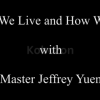
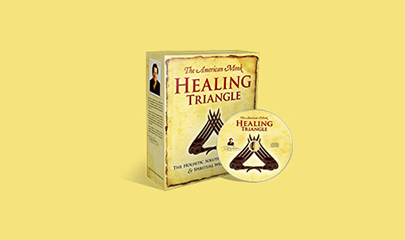

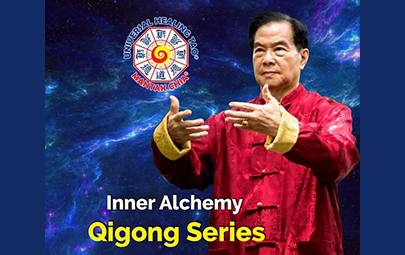

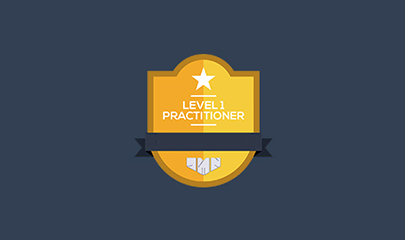
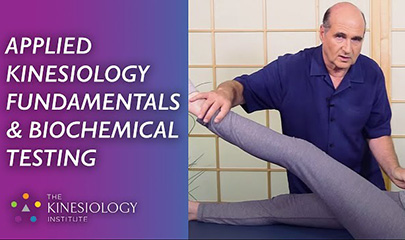


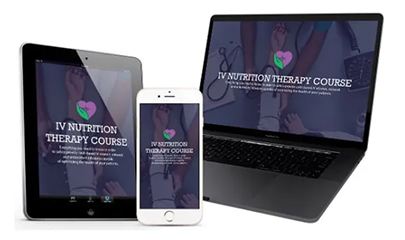
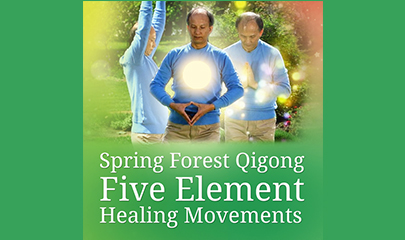

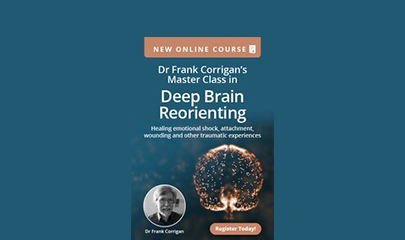

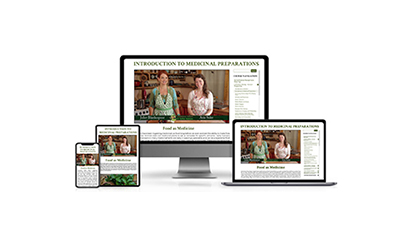

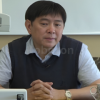
Reviews
There are no reviews yet.